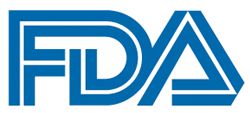Rituximab Biosimilar Approved by FDA for CD20+ B-Cell NHL and CLL
PF-05280586, a biosimilar for rituximab, has been approved by the FDA for use as a single-agent or in combination with chemotherapy for the treatment of adult patients with CD20-positive B-cell non-Hodgkin lymphoma, or in combination with chemotherapy for patients with CD20-positive chronic lymphocytic leukemia.

PF-05280586 (rituximab-pvvr; Ruxience), a biosimilar for rituximab (Rituxan), has been approved by the FDA for use as a single-agent or in combination with chemotherapy for the treatment of adult patients with CD20-positive B-cell non-Hodgkin lymphoma (NHL), or in combination with chemotherapy for patients with CD20-positive chronic lymphocytic leukemia (CLL).
While this is the second rituximab biosimilar approved by the FDA, this is also the first biosimilar approved as a treatment of patients with Granulomatosis with Polyangiitis (GPA) and Microscopic Polyangitis (MPA).
The approval is based on a review of a comprehensive data package, which demonstrated biosimilarity of PF-05280586 to reference rituximab. The package includes findings from the REFLECTIONS B3281006 clinical comparative study, which showed there were no clinically meaningful differences in efficacy or safety versus reference rituximab in patients with CD20-positive, low tumor burden follicular lymphoma.
“Rituximab became one of the first monoclonal antibody (mAb) cancer treatments when it was initially approved by the FDA, representing a significant treatment advance and the only option available to oncologists and their patients for a period of time,” Jeff Sharman, MD, medical director, US Oncology Hematology Research, stated in a press release. “With this FDA approval, clinicians have an additional treatment option that will help improve access to care for patients in need of anti-CD20 mAb therapy.”
Specifically, PF-05280586 is indicated for the treatment for adult patients with relapsed/refractory, low grade or follicular, CD20-positive B-cell NHL as a single agent; previously untreated follicular, CD20-positive, B-cell NHL in combination with frontline chemotherapy and, in patients achieving a complete or partial response to a rituximab product plus chemotherapy, as single-agent maintenance therapy; non-progressing, low-grade, CD20-positive, B-cell NHL as a single agent after frontline cyclophosphamide, vincristine, and prednisone chemotherapy; previously untreated diffuse large B-cell, CD20-positive NHL in combination with cyclophosphamide, doxorubicin, vincristine, and prednisone or another anthracycline-based chemotherapy regimen; previously untreated and previously treated CD20-positive CLL in combination with fludarabine and cyclophosphamide; and GPA and MPA in adult patients in combination with glucocorticoids.
Results of the REFLECTIONS B3281006 trial were presented at the 2018 ASH Annual Meeting. In the study, patients with previously untreated CD20-positive, low tumor burden follicular lymphoma were randomized 1:1 to intravenous PF-05280586 or rituximab-sourced from the European Union (rituximab-EU) at 375 mg/m2once weekly for 4 weeks on days 1, 8, 15 and 22. Patients were stratified at randomization using the Follicular Lymphoma International Prognostic Index 2 (FLIPI2) classification and had an ECOG performance status of 0 or 1.
The primary endpoint was overall response rate (ORR) at week 26, which was defined as the percentage of patients achieving complete response (CR) or partial response (PR), based on central review. Secondary endpoints included progression-free survival (PFS), CR rate at week 26, time to treatment failure, duration of response, overall survival, safety, immunogenicity, pharmacokinetics and pharmacodynamics. The primary endpoint was evaluated once all patients completed week 26 assessments.
A total 394 patients were randomized to receive PF-05280586 (n = 196) or rituximab-EU (n = 198). Moreover, 54.8% of patients were female, the median age was 60.0 years, and 28.4% had low, 66.0% medium, and 5.6% had high risk, according to FLIPI2. Additionally, 26.9% of subjects had Ann Arbor Stage II, 44.2%, Stage III, and 28.9%, Stage IV disease.
Results showed that the ORR at week 26 was 75.5% with the biosimilar compared with 70.7% for rituximab-EU for a difference of 4.66%; moreover, the corresponding 95% CI (-4.16-13.47) was within the prespecified equivalence margin of ±16%. The CR rates were 29.3% vs 30.4% with the biosimilar and rituximab-EU arms, respectively. The stable disease rate was 11.5% versus 19.6%, and 3.4% compared with 4.3% had progressive disease with PF-05280586 versus rituximab-EU, respectively. The estimated 1-year PFS rates were 76.4% (95% CI: 67.2-83.4) and 81.2% (95% CI: 72.1-87.6) in the PF-05280586 and rituximab-EU groups, respectively.
Regarding safety, the incidence of treatment-emergent adverse events (TEAEs) were similar at 78.6% with PF-05280586 versus 72.1% with rituximab-EU. The most frequently reported TEAEs included infusion-related reactions (25.5% vs 29.9% with PF-05280586 and rituximab-EU, respectively), pruritus (6.6% vs 11.2%) and headache (8.2% vs. 9.6%). Serious AEs were similar at 7.7% and 6.6% with PF-05280586 and rituximab-EU, respectively.
Additionally, the most common adverse events associated with PF-05280586 include infusion-related reactions, fever, lymphopenia, neutropenia, chills, infection, weakness, nausea, diarrhea, headache, muscle spasms, anemia, and peripheral edema. Similar to standard rituximab, the label for the biosimilar includes a Boxed Warning for increased risks of the following: fatal infusion-related reactions; severe skin and mouth reactions; hepatitis B virus reactivation; and progressive multifocal leukoencephalopathy.
"Biosimilars like Ruxience have the potential to deliver real value in healthcare, improving access to and affordability of an important cancer treatment which could help more patients receive optimal care," Andy Schmeltz, global president, Pfizer Oncology, the developer of the biosimilar, stated in a press release. “The FDA approval marks our third oncology biosimilar to be approved in the United States this year, reinforcing our commitment to bring these important medicines to patients living with cancer."
Reference:
FDA Approves Pfizer’s Biosimilar, RUXIENCE (rituximab-pvvr), for Certain Cancers and Autoimmune Conditions. Pfizer. Published July 23, 2019. https://bwnews.pr/2Sxzvmo. Accessed July 23, 2019.